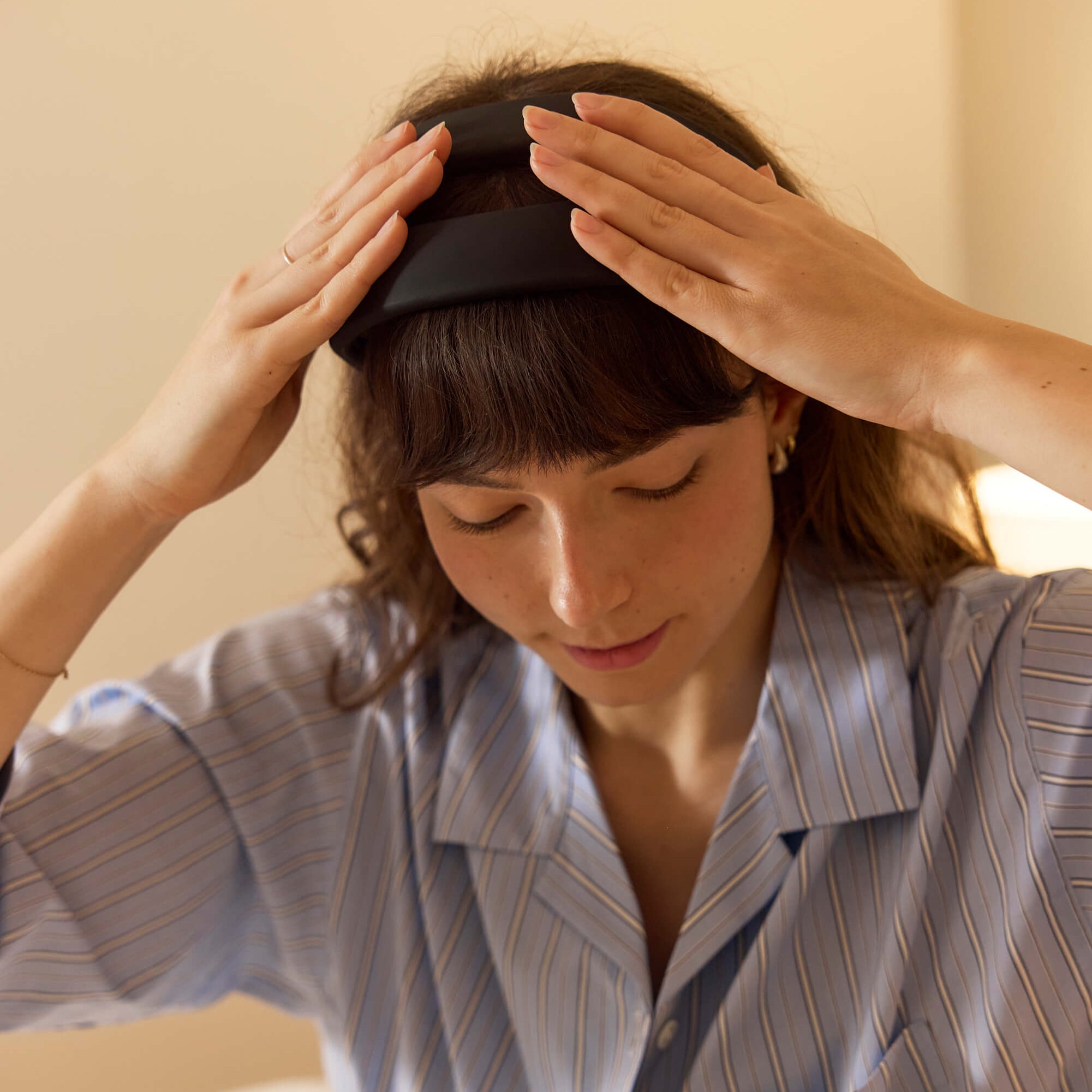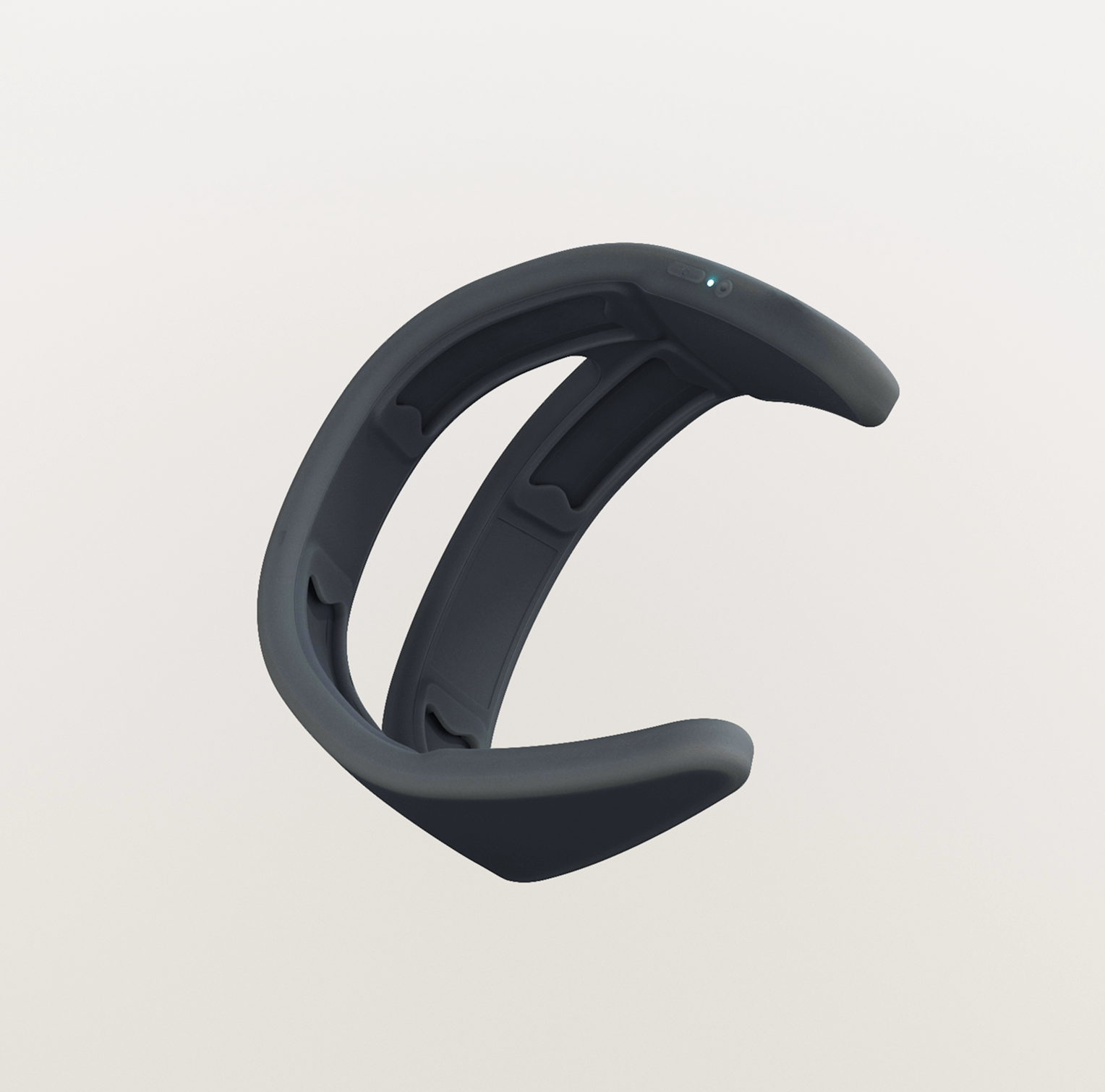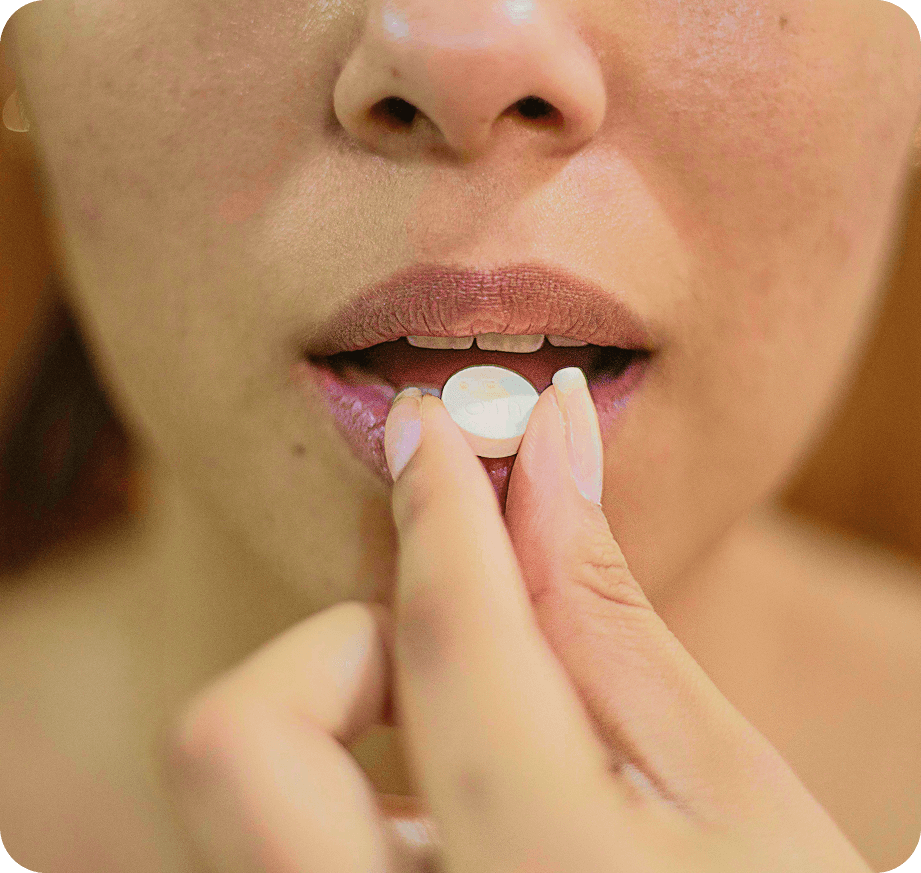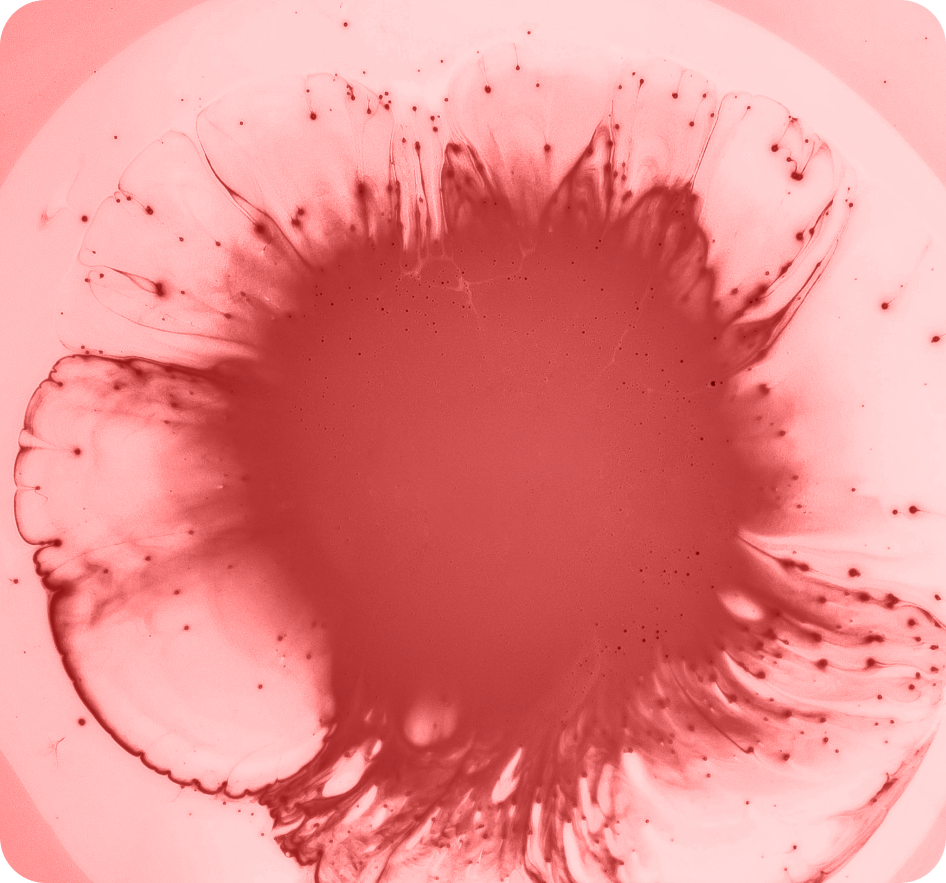Meet Nettle™
Women experience their menstrual symptoms through their brain... so we created a clinical-grade headband that delivers PMS and period pain relief.

What is Nettle™?
The only medically-certified, hormone-free and drug-free treatment for PMS and menstrual pain.
By mimicking the brain's activity during the follicular phase, Nettle™ helps you regain clarity, comfort, and control throughout your cycle with just 20 minutes a day in the second half of your cycle.
Nettle™ does this by sending gentle, targeted pulses to the two regions of the brain responsible for controlling your mood and pain symptoms associated with your period and nudging them to reset.
You can try Nettle™ risk-free for 3 cycles with our 90-day returns policy.
Guiding your Nettle™ setup

Place the grey electrode covers into the electrode cases within the band and soak the electrode covers in saline solution until they feel spongey and wet. It may take more liquid than you think depending on the thickness of your hair.

Place Nettle™ comfortably on your head and press it onto your scalp. Your hair and shoulders near the headband will get a little wet - we recommend styling your hair post session.

Connect with the Samphire App and start your 20-minute session. You're free to do other things in the meantime, just keep your headband in place for good contact.

What's included:
- Nettle™ at-home brain stimulation headband
- All supporting accessories
- A year of access to the Samphire app
- Free express shipping
- 90-day money back guarantee
- 1 year warranty
- Just 20 minutes a day in your luteal phase
- Email + app support 7 days a week
- 3 months of Electrode Covers + Salt Sachets
The data speaks for itself
Why thousands of women are choosing neurotechnology instead of the usual treatments

Non-invasive, drug- and hormone-free
Nettle™ offers an effective and clinically-validated treatment for menstrual symptoms without relying on painkillers, SSRIs or hormonal contraception.
Nettle's™ gentle, low-current pulses mimic the brain’s natural energy, helping your brain rebuild healthy pathways without side effects.

Outperforms traditional treatments
Nettle™ has proven to be a safe alternative that outperforms painkillers (NSAIDs), hormonal contraceptives or "the pill" (COCs), and anti-depressants in managing pain, mood, and overall functionality while reducing side effects.
The traditional treatments listed above only work for 18-53% of women with severe period-related symptoms.
Review the independent research and industry meta-reviews (here and here)

Zero severe side effects
Not a single severe side effect has been reported in over 30 years of research and use, due to the non-invasive nature of Nettle's™ technology (tDCS).
We have never had women discontinue our trials due to side effects, and are uncompromising that women deserve effective solutions that don't put their safety at risk.
Mild side effects include itchiness & tingling near the headband, which passes with time and, in rare cases (<1%), transient headaches or nausea (resolving within 30 minutes).
